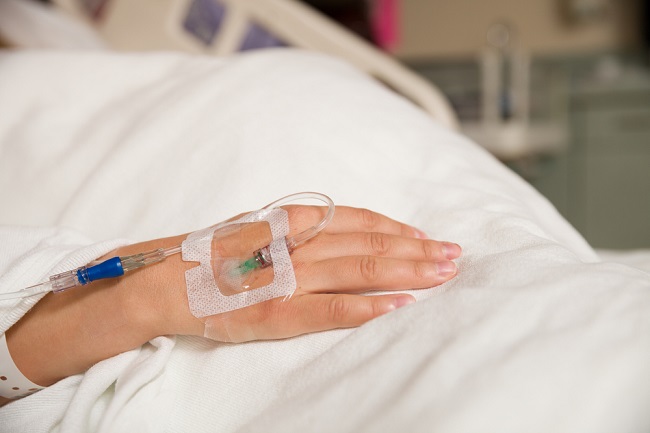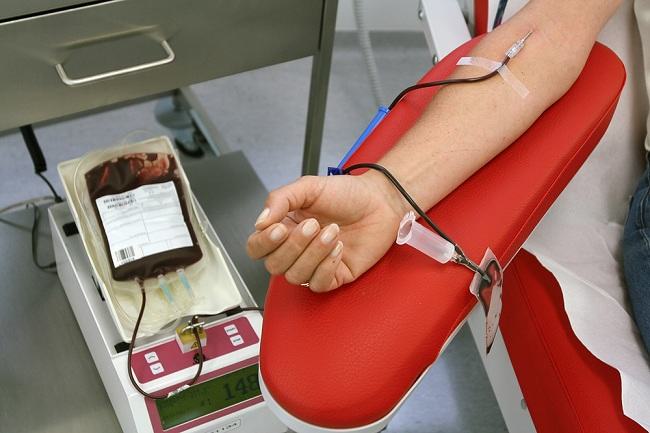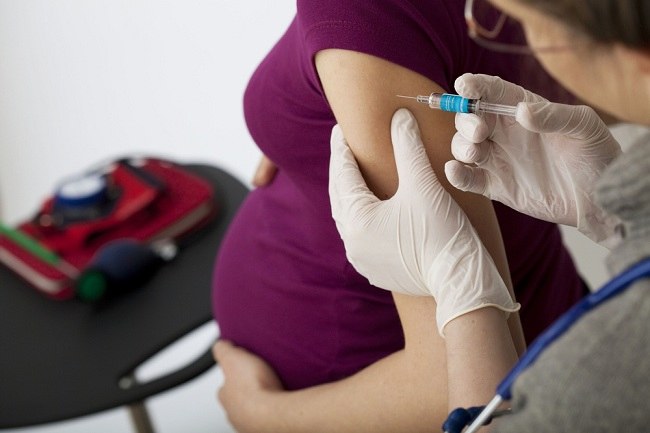Estriol is a type of estrogen hormone produced by a woman's body and the amount will increase during pregnancy. This hormone has many roles in regulating the function of body organs, including reproductive organs, heart, and bones.
When experiencing menopause, the level of estrogen in a woman's body will decrease. As a result, postmenopausal women are prone to experiencing symptoms related to decreased estrogen levels, including vaginal dryness, vaginal irritation, or vaginal discharge hot flashes.

Estriol will replace the lack of the hormone estrogen. That way the complaints and symptoms due to estrogen deficiency can subside. In addition, this drug can also be used in the treatment of infertility or infertility due to disorders of the cervix. Estriol is available in tablet and cream form.
Estriol trademark: Ovestin
What is Estriol
| group | Prescription drugs |
| Category | Hormone replacement therapy |
| Benefit | Hormone replacement therapy in menopausal women, treat infertility due to disorders of the cervix, and treat atrophic vaginitis in menopausal women |
| Used by | Mature |
| Estriol for pregnant and lactating women | Category N: Not categorized. It is not known whether estriol can be absorbed into breast milk or not. Breastfeeding women are advised to consult a doctor before using this drug. |
| Drug form | Tablets and cream |
Precautions Before Using Estriol
Before using this drug, you need to pay attention to the following points:
- Do not use estriol if you are allergic to this drug. Tell your doctor about any allergies you have.
- Tell your doctor if you are pregnant, plan to become pregnant, or are breastfeeding. Estriol should not be used by pregnant women.
- Tell your doctor if you have unexplained bleeding outside of your menstrual cycle, an estrogen-related tumor, heart attack, liver failure, porphyria, or breast cancer. Estriol should not be used by these patients.
- Tell your doctor if you have or are currently experiencing thrombosis or blood clots, stroke, asthma, diabetes, kidney disease, hypertension, migraine, epilepsy, lupus, gallstones, liver disease, or otosclerosis.
- Tell your doctor if you are taking certain medications, supplements, or herbal products.
- See your doctor right away if you have an allergic drug reaction, serious side effect, or overdose after using estriol.
Dosage and Instructions for Use of Estriol
The dose of estriol that your doctor prescribes can be different for each patient. The following are estriol dosages based on the condition you wish to treat:
Drug form: Tablet
- Condition: Hormone replacement therapy in menopause
The dose is 0.5–3 mg daily for 1 month, then followed by 0.5–1 mg daily.
- Condition: Infertility due to disruption of the cervix
The dose is 0.25–1 mg per day, treatment is started on the 6th to 15th day of the menstrual cycle.
Shape drug: Cream
- Condition: Atrophic vaginitis in menopausal women
Apply 0.01% or 0.1% cream, once a day. Reduce dose gradually to 2 times a week.
How to Use Estriol Correctly
Follow the doctor's advice and read the information listed on the drug packaging label before using estriol. Do not reduce or increase the dose without consulting your doctor first.
Estriol tablets can be taken before or after meals. Swallow the medicine with the help of a glass of water.
Estriol cream is used with the help of an applicator in the form of a tube which is available in the medicine package. Fill the applicator with estriol cream. To fill it, connect the top of the applicator pack with the cream pack. Press the cream pack so that the medication fills the applicator.
On the applicator there is a boundary mark which is usually marked with a red line. Fill the cream into the applicator according to the specified limit. Once filled, insert the applicator as deep as possible into the vagina and then slowly remove the cream from the applicator.
If you forget to take a tablet or use estriol cream, it is advisable to do it immediately if the break with the next schedule of use is not too close. If it is close, ignore it and do not double the dose.
Store estriol at room temperature and in a closed container to avoid sun exposure. Keep this medicine out of reach of children.
Estriol Interactions with Other Drugs
There are several drugs that can cause interactions when used with estriol. Its effects may affect the effectiveness and mode of action of estriol and the following medicines when used together. These drugs are:
- Antiseizure medications, such as barbiturates, hydantoin, or carbamazepine
- Medications for fungal infections, such as griseofulvin, or bacterial infections, such as rifampicin
- medicine for viral infections, such as nevirapine, efavirenz, ritonavir, or nelfinavir
- Herbal remedies containing St John's wort (Hypericum perforatum)
- Corticosteroids, succinylcholine, theophylline, or troleandomycin
Side Effects and Dangers of Estriol
The following are some of the possible side effects of using estriol:
- Headache
- Nauseous
- Flu symptoms
- Pain or discomfort in the breast
- Spotting, vaginal discharge, irritation, or itching in the vagina
Check with your doctor if the side effects mentioned above don't go away or get worse. See your doctor right away if you have an allergic reaction to a drug or a more serious side effect, such as:
- Heavy bleeding from the vagina outside of the menstrual cycle
- Severe headaches or migraines
- Swelling or pain in the legs
- Difficulty breathing or chest pain
- Heart palpitations (palpitations)
- Breast lumps or nipple changes
- Jaundice









